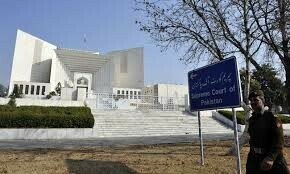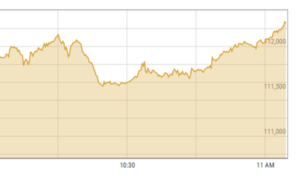• No constitutional amendment required for the move, senators told
• Law ministry asked to provide statistics to assess need
• Tarar comes up with figure of 24, Naek proposes total strength of 21
ISLAMABAD: Most members of the Senate Standing Committee on Law and Justice, in its maiden session on Wednesday, agreed on the need to increase the sanctioned strength of Supreme Court judges, but the consideration of a bill to this effect was deferred till their next meeting.
The meeting, which was presided over by Senator Farooq H. Naek, decided to seek details of cases pending be-fore the SC and the vacancies of judges in the high courts before the next meeting to reach an appropriate decision.
Law Minister Azam Nazeer Tarar was of the opinion that the number of judges could be determined on the basis of pendency details. “We may require to increase it from 17 to 24,” he said.
The law minister expressed the need for a review, not only of judicial numbers but also of the code of standards governing Supreme Court justices, emphasising that judicial independence should not preclude accountability for performance.
He noted that the judges enjoy independence but “ignore timelines”, though the Senate committee chairman explained that the workload had increased tremendously since the increase in strength of high court judges.
PML-N senator Anusha Rahman advocated for a nuanced approach to assess the impact of judicial efficiency on case backlogs, independent of mere statistical analysis.
However, Senator Hamid Khan during the deliberations contended that setting up of constitutional courts would not solve the problem and gave examples of global structures converse to the structure of apex court.
PPP senator Zamir Hussain Ghumro called for a balanced allocation of judges across all provinces.
Empirical evidence
The committee chairman, while supportive in principle of augmenting the SC’s judicial strength, underscored the necessity for empirical evidence to substantiate any increase.
Mr Naek, however, admitted that over the years, the number of high court judges in the four provinces and Islamabad had increased, resulting in an increase in the number of judgements and orders they passed. As a consequence, number of appeals also piled up pressure on the apex court.
The backlog and pendency of appeals in SC was evident due to shortage of judges, it was noted. Besides, there has been an increase in suo motu cases and petitions filed under Article 184(3) for enforcement of fundamental rights.
All these factors have put pressure upon the present strength of SC judges; thus failing to meet backlog despite their continuous hard work in disposal of cases.
This fact was also responsible for the appointment of ad hoc judges in SC. Thus, to relieve pressure upon SC, it is the need of the hour to increase the strength of judges from 17 to 21.
Mr Naek also noted that the number of SC judges could be enhanced with simple legislation and no constitutional amendment would be required.
In view of the discussion, the committee agreed on the increase in the number of judges after rationalising certain factors.
Details of pending cases sought
Consequently, the bill was deferred for next meeting with the direction to the law ministry to submit detailed statistics on pending cases, case resolutions over the past year, legislative workload in SC and number of increase in high court judges with an explanatory note as to the number of vacancy in the appointment of high court judges for four provinces as well as ICT against sanctioned strength.
Published in Dawn, July 25th, 2024







